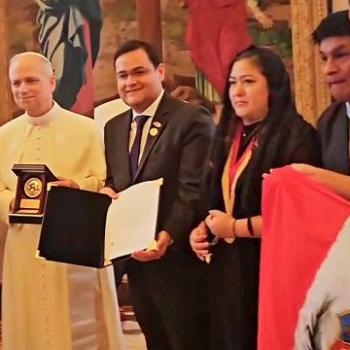The past decades have seen considerable cultural shifts that have transformed the way society functions, and tremendously affected the practice of our Catholic faith. During the Convocation of Catholic Leaders in Orlando in early July, Dr. Hoffsman Ospino of Boston College identified four of these shifts, giving abundant weight to the words of Pope Francis that our times are “not merely an era of change, but a change of era.”
Family life has been significantly reconfigured in terms of roles and practices. The opening lines of Pope John Paul II’s exhortation on the family written in 1981 already recognized these changes. “The family in the modern world… has been beset by the many profound and rapid changes that have affected society and culture. [Some families] have become uncertain and bewildered over their role or even doubtful and almost unaware of the ultimate meaning and truth of conjugal and family life (Familiaris Consortio, 1).” Shifts in the most basic unit of society, the family, have caused seismic alterations in modern society.
The experience of communal life has been greatly eroded and been replaced by a more individualistic instinct. The focus on the individual makes advocating for others unnecessary and the worshipping in community no longer important. Even though God has chosen to call us together as a people and not as isolated individuals (Evangelii Gaudium, 113), only about one-third of Catholics attend Mass on Sunday. Communal worship is in decline.
Divisions brought about by culture wars have made respectful dialogue almost impossible. Pope Francis constantly calls us to dialogue where we encounter the other person, even if we do not agree with his or her ideas. Respect and dialogue seem to have vanished, just look at any comment board online. The idea of disagreeing yet still respecting the other person seems to have disappeared. Unfortunately this is true not only in politics, but also in families and the Church.
Secularization in general presents yet another cultural shift in the modern world. In 1991, only three percent of those living in the United States identified as having no religious affiliation. This year, that number is up to 25%. Hoffsman Ospino points that the trend is clear: organized religion is losing its centrality and the young are leaving in droves. He rightfully asks, “where is the outrage?”
Hoffsman Ospino brings hope and direction in the midst of these cultural shifts by quoting Pope Francis, “mere administration can no longer be enough. Throughout the world, let us be permanently in a state of mission” (EG, 25). He argues that we live in a critical time of history where something is passing away and something new is emerging. There is no need to return to an idealized past, but rather to prepare for something new since Jesus makes all things new. Pope Francis has rightly described our times as “not merely an era of change, but a change of era.” This requires bold missionary disciples to present the Gospel to a world that finds it irrelevant. There is much work ahead of us, yet Cardinal Donald Wuerl encourages us to share the Gospel with boldness, compassion and joy because we have great confidence in the message we share.
Picture is mine, all rights reserved. The Oculus, New York City, 2017













